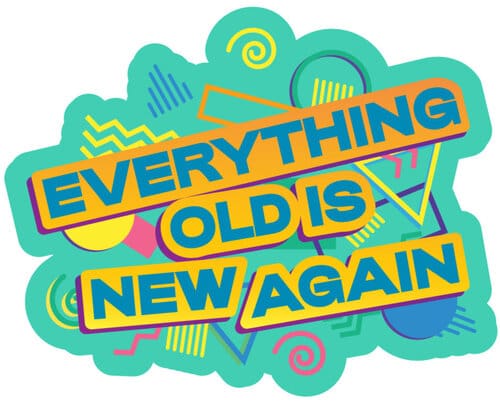Do you remember back in the day when your Employee Benefits renewal time came around? What a nightmare – Everyone had to fill out health questionnaires, just to have the insurance company come back and tell you they weren’t going to give you a quote after all. Then along came the Affordable Care Act (ACA). Suddenly everyone was able to be insured and get the healthcare they needed. What a wonderful time this was for the health and wellbeing of our nation. The insurance companies responded by rolling out some of the newest and most innovative wellness programs we had ever seen. In hindsight, the problem that occurred was, healthy active people stayed healthy and active and got rewarded and everyone that needed to “improve” their lifestyle decisions just kept going with their same old habits. In short, the wellness programs didn’t really move the needle on overall fitness.
This is what brought us to the first big “aha moment” of the ACA. It was called Community Rating. In essence, since insurance companies could no longer ask about our individual health, they had no way of setting prices. So, what they did was just looked at the entire community (Usually on county-by-county basis) and just averaged all of us together to figure out what they should expect regarding claims and medical expenses. This system works terrific if the demographics and health of your staff is 100% average.
But then, the “Be Careful What You Asked For” moment came about. What happens if your staff isn’t average? What happens if the health or gender makeup of your company is not the same as everyone else’s? Well, guess what? You’re out of luck. You are paying to help subsidize your neighbors and their neighbors all in the name of economic averages. But now there may be a better way… Again.
Tip 1 – Level Funding
Enter Level Funding (Or Partial Self-Funding – Same thing different marketing). Now the Employee Benefits industry is letting us go back to old days and give them the health and demographics of your group. They put the information in their system (It’s kind of like in Oz – “Don’t Peek Behind This Curtain). I say this only because every insurance company will assess different values and criteria to your company’s specifics and demographics. Since they all have different experiences, they all look at things differently. So don’t be too critical when company A says, “We love you just the way you are” and company B says, “Maybe next time”. They take this information, and they try to predict what your company’s claims will be for the year. If their prediction is better than average, then they come back and offer you a lower premium than the community-rated plans. If they think your company is a train-wreck waiting to happen then they’ll propose rates that are higher than the standard “off-the-shelf” rates, or they’ll politely tell you they are declining to quote. That’s Employee Benefit’s speak to say, “You should stick with the community rates”. The moral of the story is you have nothing to lose by exploring Level-Funded Plans.
Oh, and I didn’t tell you the best part, if the insurance company guessed wrong and your firm had lower than projected claims, they’re going to give money back. But if your company went the other direction and had a lot of medical issues, well, that’s on them. The insurance company is on the hook to pay the excess claims and they’re not going to come back and ask you to pay the difference.
Tip 2 – Wellness Planning
Let’s get back in shape. I think we need more leg warmers in the world. (If you’re younger than a Gen X’er, just Google Olivia Newton John – you’ll see what leg warmers are.) You see, now is when putting a robust wellness program into your company starts to make sense. Being healthy can finally, actually put real money in your (and your employee’s) pocket. Now there is a literal and actual reward for being healthy and keeping your medical claims down. Everyone wins. By doing this, planning budgets and projecting expenses becomes much easier. Which subsequently leads to better profitability. Who doesn’t like that?
Tip 3 – What Next?
Act- Don’t React. Do you remember the sinking feeling we used to get when the insurance broker walked through the door? It seemed like it was never good news. We were just so conditioned to get a rate increase every year, it wasn’t a question of if, but instead simply how much?
Fortunately, as a 30-year veteran of the Employee Benefit’s industry, myself and some of my other top-tier industry professionals take the time to do the research to determine what the industry refers to as “trend”. This is a way to help estimate what the premium changes may be, literally up to 6 months in advance of the dreaded Renewal Meeting. But you ask, “Why does this matter?” What happens if you’re pricing your goods or bidding a project that will start 6-9 months out and you’re planning on a 5% increase in your benefits costs. And then seemingly out of nowhere you get hit with a 15% increase, and then gas prices go up, and suddenly there is mandated wage increase and so on and so on. You get the picture – You Underbid – which means less profit towards the bottom line.
The Time is Now
So where am I going with this? Knowledge is power. You should expect more from the people you work with regarding your company’s Benefits. Expect them to work for you for all 12 months of the year. Not just at renewal (Why not, they’re getting paid every month). Find someone who really knows your business and industry and make them a true partner in your business planning. The days of the one-size fits all insurance brokers are numbered. You deserve someone that has taken the time to specialize in your company’s needs.







0 Comments